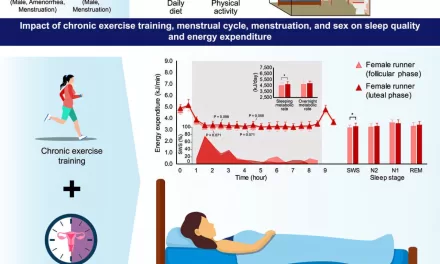Recent research has highlighted the significant impact that lifestyle choices and air pollution have on mortality rates. The study, published in BMC Public Health, underscores the crucial role of maintaining healthy lifestyle habits while also addressing the detrimental effects of air pollution.
The Role of Lifestyle in Health
Lifestyle factors such as physical activity, sleep quality, dietary habits, nicotine exposure, and body mass index (BMI) are integral to combating the economic and medical challenges posed by many diseases. Previous studies have demonstrated that physical inactivity, poor diet, heavy alcohol consumption, and smoking contribute to 60% of premature mortality. These unhealthy habits increase the risk of coronary heart disease, cancer, hypertension, and diabetes, emphasizing the need for a healthy lifestyle to enhance overall quality of life.
Air Pollution and Health Risks
Ambient air pollution is another significant factor affecting human health. A 2018 report indicated that 6% of global deaths were attributable to ambient air pollution. While many studies have focused on the impact of individual air pollutants on mortality risks, it is essential to understand the combined relationship between lifestyle factors, air pollution, and all-cause mortality.
The Study: Methodology and Findings
The current population-based prospective cohort study assessed the potential association between various lifestyle factors, air pollutants, and all-cause mortality risk. Using data from the United Kingdom Biobank, researchers analyzed the health information of over 500,000 individuals aged 37 to 73, with 271,075 participants meeting all eligibility criteria for the study.
Five lifestyle factors—smoking, alcohol consumption, physical activity, diet, and sleep—were evaluated at baseline. Annual average concentrations of PM2.5, PM10, PM2.5−10, and nitrogen oxides (NOx) were estimated using Land Use Regression (LUR) models. Mortality rates were obtained from the National Health Service (NHS) Information Center for England and Wales and the NHS Central Register for Scotland.
The findings revealed that healthy lifestyles were associated with a reduced risk of all-cause mortality, while higher exposure to NOx, PM2.5, and PM10 was positively correlated with increased mortality risk. Notably, the association between unhealthy lifestyles and mortality risk varied across different air pollution subgroups, with a stronger link observed in areas with lower air pollution levels.
Key Insights
Among the air pollutants studied, PM2.5 was most strongly associated with mortality due to its small size and prolonged atmospheric suspension, which can cause significant lung damage. PM10, although less toxic than PM2.5, still contributed to increased mortality when combined with other pollutants.
Healthy lifestyle choices, such as good sleep quality, sufficient physical activity, non-smoking, and a healthy diet, were consistently associated with reduced mortality rates. Smoking emerged as the most significant lifestyle factor linked to mortality, attributed to the inflammation and oxidative stress induced by nicotine exposure.
Interestingly, alcohol consumption was not significantly correlated with all-cause mortality in this study. This finding contrasts with previous research suggesting that moderate drinking may be healthier than abstinence due to the beneficial compounds in wine. The contradictory results indicate a need for further research to better understand the relationship between alcohol consumption and mortality risks.
Conclusions and Recommendations
The study highlights the synergistic protective effects of multiple healthy lifestyle factors on reducing mortality risks. Maintaining a variety of healthy habits is crucial for promoting good health. Conversely, extensive research has documented the cumulative adverse impact of multiple air pollutants on mortality.
The association between mortality risk and unhealthy lifestyles became more significant as air pollution levels decreased, emphasizing the importance of coordinated measures to improve air quality and promote healthy lifestyles to minimize mortality risk.
Despite some limitations, including potential measurement errors and the exclusion of certain behavioral factors, the study provides valuable insights into the combined impact of lifestyle choices and air pollution on mortality.
Journal Reference: Pu, L., Zhu, Y., Shi, X. et al. (2024). Health impacts of lifestyle and ambient air pollution patterns on all-cause mortality: a UK Biobank cohort study. BMC Public Health 24;1696. doi:10.1186/s12889-024-19183-5, BMC Public Health












